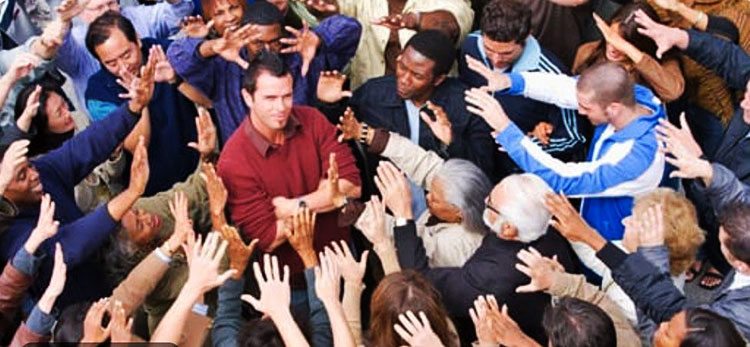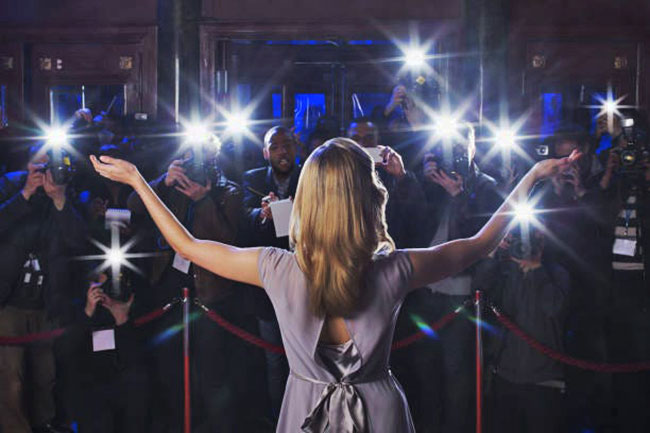|
from DGilesPhd Website
NOTE: A reader on Medium learned in Greek grammar alerted me that I had formed the word from the incorrect case of διάσημος.
The neologism should be "diasimocracy" not "Diasimosocracy" as I originally had it.
I apologize for the error.
Oh, hello.
Good to see you here. I am grateful for the minor miracle that brought you here. I'm always surprised and pleased that anyone sees what I write. That's because I'm a nobody...
Oh, I don't think that about myself; I'm not lacking self-esteem.
Thus, in the eyes of society, in this diasimocracy, I am "nobody"...
I think it is a fitting term for describing our
current time. I'll explain.
The widespread availability of mass media and
online interconnectivity spread that information far and wide. In
theory, we currently have access to more information than anyone in
human history.
Capitalism and corporate dominance of information, and especially media, significantly structure and hinder what access people have to information.
People are drawn to those who are famous and people assume that if one is famous, that makes one interesting, even fascinating.
This should be obvious, and yet, argumentum ad populum, the "argument to the people," or argument from popularity, is a very common logical fallacy, and it is at work in the fascination with celebrity.
The fallacy is also called the "bandwagon
fallacy" because of the human vulnerability to be drawn in by
spectacle and the crowd.
In fact, I suspect that most people will prefer a
poorly written article from a celebrity even if they are told
there's a better one written by a nobody.
Decisions made by both providers and consumers of information are ruled by this bias in favor of celebrity.
Fame - that amorphous yet brutally tangible
attribute - is prized for its own sake and is power in itself.
Functionally, our society is a diasimocracy - rule by
celebrity...
The bias toward celebrity crowds out other
considerations and thus other ideas and other people, creating the
lowest common denominator and the race toward the bottom.
The shallowness of diasimocracy (Source: iStock)
Aristotle identified three forms of government:
...and further identified the positive and negative manifestations of those forms depending on who benefits from the rule.
Source: this article which gives a good explanation
of Aristotle's
'Politics'
thinking
When considering actions, whom the powers that be recognize and include as valuable people go a long way toward a healthy and just society.
I add to Aristotle's forms of government a social dimension that he couldn't have anticipated:
In Aristotle's time, and for many centuries later, one learned by going to a distinct place of learning - a school, library, or monastery where the information existed.
"Knowledge is power," as Francis Bacon observed, and those who had gained knowledge were respected as learned people.
Information distribution was ruled by a meritocracy - not perfectly, of course, economic and nepotistic forces interfered as they always have and still do.
Nevertheless,
That has changed in the "information age" and the prevalence of mass media.
Thus, to Aristotle's rule by the one, few, or many, I add the column of rule by the media:
Rule by the media can be positive or negative depending on whose interests it includes and benefits.
Evidence that we live in a diasimocracy is easily found in mass media, especially social media...
In social media, the recursive process of escalating nepotism rules, as the platforms promote celebrities, consumers gravitate toward celebrities, and the loop continues.
When a celebrity shows up on a media platform, they will instantly attract many followers.
If a new creator gets lucky and gains a
following, often by aping other celebrities, they become a
celebrity and the loop continues. The celebrities know that they
don't need to care about producing high-quality content, so they
don't.
The corporate media exploits the human
vulnerability to be fooled by the bandwagon fallacy, and the rule by
the media benefits not the common interest but the interests of the
celebrities and the corporate gatekeepers.
Those who try to get noticed in the mass media through merit are all but shut out. You can say that media corporations are motivated by money, as is the nature of corporate capitalism, but ask yourself what is driving the revenue that media corporations want to grab.
That would be the rule by celebrities.
This is the diasimocracy in which we live.
It is a tyranny that benefits a few but not the common interest. Fame has always had its advantages. By definition, the more well known you are the more people are aware of you and what you say and do.
Fame is a good for the person receiving fame, but
that does not necessarily translate to a good for the
greater society...
The diasimocracy feeds those cravings and the negative attitudes and actions that follow.
It's "human nature"...
Coincidentally, as I wrote that last paragraph, my university e-mail pinged that I had a new message - the kind of conference invitation I get as a philosophy professor.
It was a broadcast e-mail inviting people to a "festival of ideas" organized by an "institute of ideas." This institute does some good work, so I looked at the list of twelve headliners anticipated at the event.
I knew eleven of the names, familiar with who they were and what they've written.
Were they selected for this "festival of ideas" because of their ideas or because they are celebrities?
But what do I know? I'm 'a nobody'...
If I was famous, I could say any old nonsense and receive many, many cheers for it, even get 'elected president'... But I'm interested in truth more than in celebrity.
Sadly, integrity is incompatible with our
diasimocracy, as, apparently, am I...
|




